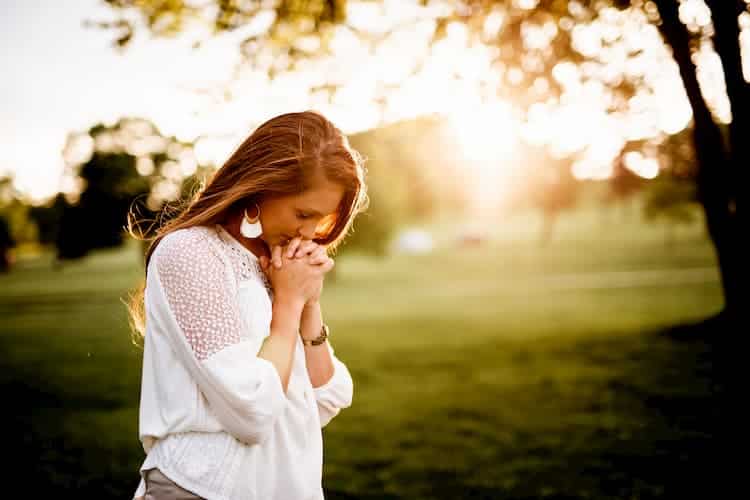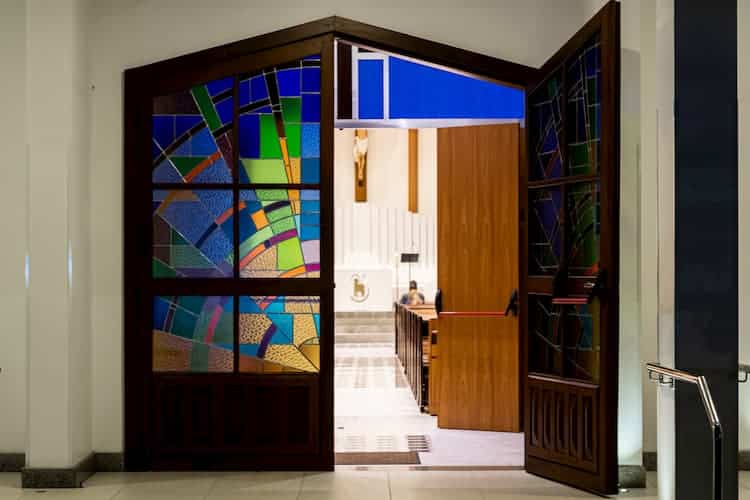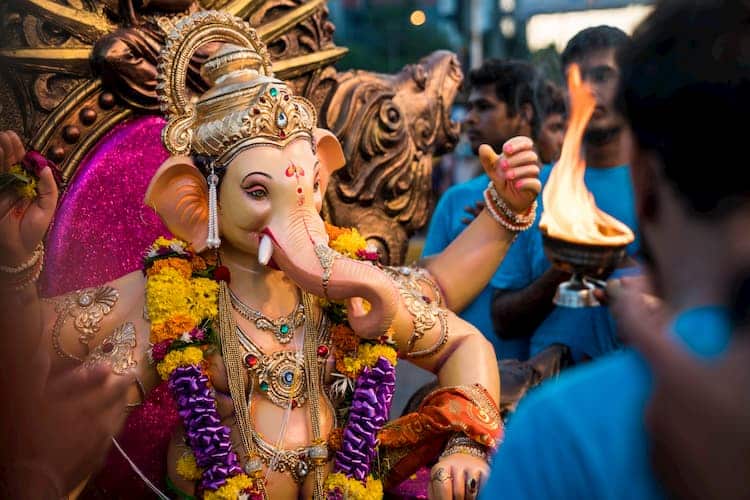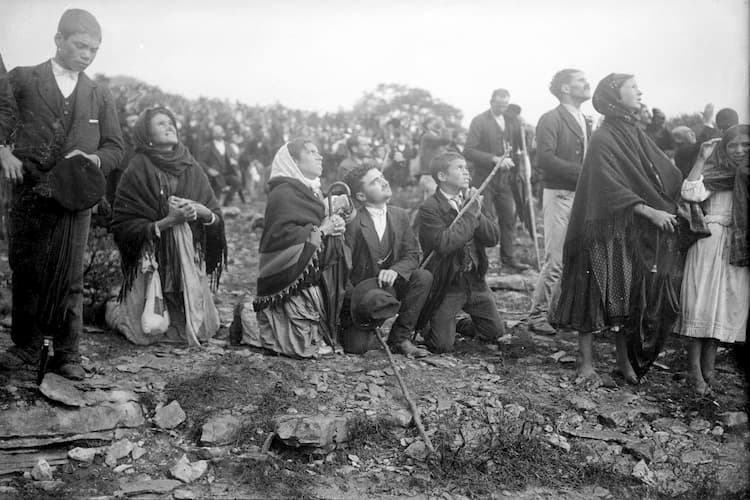In Portugal, religion is a big part of everyday life. You don’t even have to be religious to recognize it.
Just look at the other side of the Tejo and you will see Jesus Christ embracing the city of Lisbon or go to the bakery and ask for a Pão de Deus (God’s bread). Not to mention the numerous little churches you bump into during your walks or the huge monasteries attracting thousands of tourists every year.
Keep reading and learn more about the connection between Portugal and religion.
What is the main religion of Portugal?
In Portugal, religious beliefs are pretty uniform. Most of the population are Christian, and more precisely Catholic. According to the census in 2011, 81% of the population consider themselves Catholic.
Is Portugal a religious country?
Despite a large number of people who describe themselves as Catholics, only 19% of them attend mass and take sacraments regularly. It shows that in Portugal religion is more like a personal belief rather than something you should practice and apply in your everyday life.
However, even though not many Portuguese go to church every Sunday, most of them still want religion to be present in the biggest events of their life. A big number of the natives still want their kids to be baptized, they want to have a church wedding and receive the Last Rites.
Go on this unmissable religion and history tour through some of the most traditional cities in Portugal. Book it here.

What’s the history of religion in Portugal?
Religion plays an important part in Portugal’s history. Here is our brief outline.
The beginnings
The locals of what now constitutes Portugal were first Christianized when the Iberian Penninsula was part of the Roman Empire. Since then Christian religion and the development of Portugal as a country have been walking hand in hand.
For instance, being religious was a big advantage in some cases. The first king of Portugal, Alfonso D. Henriques (r. 1139-1185) asked for the Church’s help to end the Muslim rule. As a reward, Alfonso granted the Church large territories. With that move, the Catholic Church became the biggest landowner in the country.
The partnership between Portugal and the Pope continued in the Age of Explorations. The missionaries played an important role in colonization, converting the locals of Brazil and Mozambique to Christianity.
Want to know more about Portuguese history? Read our article about it here.
The turn back
The Marquis of Pombal (r. 1750–1777) decided to end the close tie between the Church and the state. He expelled the Jesuits, broke relations with Rome and made the state responsible for education.
Although after that Pombal was removed from office and a lot of laws established by him were repealed, his legacy was the beginning of the changes to come.
With the establishment of the First Portuguese Republic in 1910, the anti-clerical policies banned religious festivals and even the ringing of church bells.
The dictatorship
António de Oliveira Salazar (r. 1932-1968), the deeply Catholic leader of the Estado Novo regime put the Catholic values at the heart of his dictatorship.
However, instead of building a harmonious state, he established a corporatist totalitarian regime.
Go on a historical tour through Lisbon, where you will hear all about the ups and downs that Portugal has had. Check their availability here.

Salazar’s obsession with the Church went as far as signing the Concordat in 1940, which was a Church-state contract between the Vatican and Portugal. The Concordat didn’t put the Church at the same level as the state but gave it a very special position in Portugal.
The Catholic Church took over public schools and reestablished several new rules, which had been abolished during the First Republic. For example, while divorce had been legalized by the Republic, ending a marriage celebrated in the Church was made illegal again.
Want to know what is legal in Portugal? Check out this article.
The age of democracy
The dictatorship ended in 1976 with the Carnation Revolution and Portugal officially became a democracy. Since that moment, the Church and the state have been separated and people in Portugal are free to practice other religions, beside Catholicism.
Is Portugal a superstitious country?
In the rural areas of Portugal religion used to have a dark, nowadays almost forgotten, side. The Catholic Church never approved it, but witchcraft, magic and sorcery were an important part of the folk traditions. In the isolated parts of northern Portugal, witches, evil spirits and even werewolves used to send fear throughout villages.
Furthermore, almost every village had its own seers and healers who practiced magic. As people became more educated and moved to the cities, the superstitious behaviors started to disappear, although not completely. You can still find palm readers and fortune tellers in different neighborhoods.
Find out about the best neighbourhoods in Lisbon by clicking on this link.
How many Christian, Muslim, Jewish (and other religions) are there in Portugal?
In Portugal, people are free to practice their religion. It doesn’t matter which faith you belong to. However, Catholicism is still the predominant religion. Around 81% of the population is Catholic, while the second biggest group are Protestants with 5%.
In the 19th century, the British brought with them their religion, alongside the Baptist Church, Methodism and Presbyterianism.

According to the census in 2011, the remaining 1% is a mixture of the Jewish, Muslim, Buddhist, Hindu and Bahá’í Faith religions, whose representatives are mostly immigrants.
Around 6.8% of the population declared themselves as either atheists or irreligious.
What are the places of worship in Portugal?
You might have heard about Fátima and the myth of the three Pastorinhos. The story became world-famous and now the town of Fátima attracts thousands of pilgrims every year.
But what happened exactly?
In 1917 three young shepherds reported seeing apparitions of the Virgin Mary, which happened between May and October, on the 13th day of the month. The apparitions took place in the fields of Cova da Iria, near Fátima.
The Virgin Mary told them three secrets about the future of the world and promised a miracle on 13th October, which would make everyone believe them.
The prophecies (read more about them here) are believed to have come true and the big miracle is nowadays known as the Miracle of the Sun.
You can go on a self-guided 5-hour tour through Fátima, with the help of a map and audiobook. Skip the lines and book it here.

The miracle is supposed to have happened on 13th October 1917, when the people of Fátima, and even Pope Pius XII in the Vatican, reported seeing the sun behaving strangely.
The events were investigated by the Church and in 1930 they were declared supernatural or “worthy of belief”.
In 2017 Pope Francis canonized the two young shepherds, Jacinta and Francisco Marto.

Not long after the apparitions of the Virgin Mary, the spot in Cova da Iria became a popular pilgrim destination. These days there is a little chapel and a huge plaza around it, where the pilgrims gather especially during the time between May and October.
Fátima is one of the most famous pilgrimage spots in the world. Read all about it here.
What are the religious holidays?
Although in Portugal religion is separate from the state, some of the religious holidays still count as national holidays. Easter, Corpus Christi, Assumption Day, All Saint’s Day and Christmas are all celebrated nationally.
Are there conflicts in Portugal due to religion?
In Portugal practicing religion is your right. People accept diversity and welcome everyone, regardless of their religion.
How old are the most religious people?
No surveys focus on the age of the religious part of the Portuguese population. However, if you go mass on a Sunday, you will mostly see older women and children.
Is Portugal a conservative country?
Even though religion is an important part of Portuguese culture, you cannot describe Portugal as a conservative country. Abortion and gay marriage are allowed and gay couples are legally allowed to adopt children.
Find out more about the LGBTQ+ scene in Portugal by clicking on this link.
Are the state and the Church separated?
The Church and the state are officially separated in Portugal, but they still connect for some formal occasions. For example, when a new bridge or highway is being officially opened, it receives a blessing from the clergy.
Portugal’s Catholic background is present in every corner. You can find it in our culture and numerous Portuguese stories. It will be difficult for you not to notice our religious heritage.
